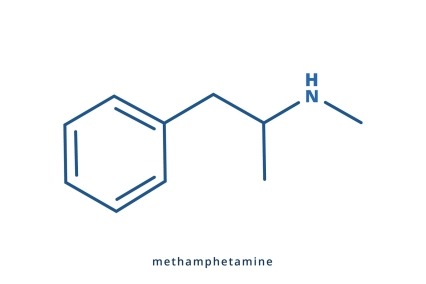
Get A Quote
What is Methamphetamine?
2023-10-16
Methamphetamine, or meth for short, is a potent and highly addictive stimulant that takes a toll on the central nervous system. Its classification as a Schedule II controlled substance highlights the severity of its potential for abuse and its limited sanctioned medical applications in cases like attention deficit hyperactivity disorder (ADHD) and obesity.
Photo: WHO | NIDA Image
Physical and Mental Ramifications:
Methamphetamine unleashes certain neurotransmitters, resulting in a brief but intense euphoria and elevated energy levels. However, this is short-lived, and prolonged use leaves devastating physical and mental repercussions:
-
Physical Effects: Chronic methamphetamine abuse results in severe weight loss, notorious dental issues known as "meth mouth," skin sores, and a compromised immune system, rendering users more susceptible to infections and diseases.
-
Mental Effects: Extended meth use triggers anxiety, paranoia, hallucinations, and even psychosis. It can also lead to cognitive impairments, memory loss, and a diminished attention span.
Modes of Consumption:
- smoking
- swallowing (pill)
- snorting
- injecting the powder that has been dissolved in water/alcohol
- swallowing (pill)
- snorting
- injecting the powder that has been dissolved in water/alcohol
Grappling with Addiction and Withdrawal:
Methamphetamine's grasp is firm, and repeated use rapidly leads to dependence. Withdrawal symptoms can be harsh, including fatigue, depression, intense drug cravings, escalated appetite, and disrupted sleep patterns. Seeking professional assistance and support is crucial when breaking free from meth's hold.
Legal Stance:
In most countries, possession, distribution, and manufacture of methamphetamine are unlawful due to its harmful effects and propensity for misuse. Legal consequences tied to meth use encompass fines, incarceration, and a permanent criminal record.
Preemptive Measures and Recovery:
Prevention stands as the frontline defense against methamphetamine abuse. Educating individuals about the perils and hazards associated with meth deters experimentation and potential addiction.
Addressing methamphetamine addiction typically involves a blend of behavioral therapies, counseling, and support groups. Seeking professional help is paramount for those wrestling with addiction, offering them the best chances of navigating withdrawal and embracing recovery.
In a nutshell, methamphetamine is a perilous substance fraught with grave physical, mental, and societal consequences. Recognizing its dangers and enlisting assistance for addiction are pivotal strides toward self-preservation and the betterment of society as a whole.
AICHEK's rapid test solution:
|
|
|



